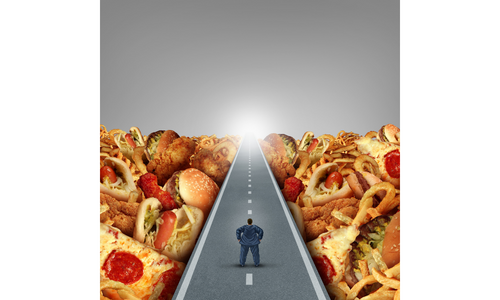What Triggers Loss of Control and Overeating?

Issue No. 27 | Brought to you by the Addiction Reset Community – ARC
Unlocking the secrets of processed food addiction and guiding you to find freedom from food and weight obsession.

Recovery from processed food addiction requires vigilance and management of triggers and cues that lead to eating processed foods. Repeated relapse and loss of control can be frustrating and is often the result of being unaware of how to identify and manage triggers and cues.
Cues are stimuli in the environment that lead to developing a routine that is the basis for a habit. On the other side of the routine is a reward. Cues, routines, and rewards go hand in hand with creating a habit. Triggers are stimuli that prompt people to think about related things. They are, quite simply, reminders to engage in a specific behavior.

The research shows that relapse is not simply due to a lack of willpower or commitment. Loss of control despite the desire to achieve abstinence from processed foods is due to reminders in the environment that stimulate the craving pathways in the brain, leading to relapse.
Here are 6 examples of triggers that you may be confronted with throughout your day:
Emotions
Research shows that processed foods adversely affect emotions. After a night of indulging in toxic food, it is not uncommon that someone wakes in the morning with negative or unstable emotions. These could include feeling disgusted with themselves, being ashamed of their loss of control the night before or feelings of dread for the day ahead. Starting the day out with these emotions can trigger cravings for more addictive foods.
Body
The toxic addictive foods that cause overeating are also inflammatory and may cause body pain. A sore body, muscles or joints can be a trigger that cues undesirable eating behaviors.
Environment
Consistent promotions and accessibility to addictive processed food in the surrounding environment can trigger a relapse. Fast food outlets, convenience stores, advertising billboards, supermarket promotions, and seeing people buying processed food or foods left out in the breakroom at work, are all reminders that build towards loss of control.
Food
Addictive substances and combinations of sugar, fat and excessive salt in food formulation, drive overeating. The food itself is a trigger. Thoughts, sights and aromas of processed food can trigger for loss of control.
Relationships
Interactions with family members, colleagues or people in our social circles may also be triggering.
Loneliness
Feelings of loneliness can be a trigger to eat. Addictive foods cut off our ability to fully connect with others even when we’re not alone. Being alone at the end of a triggering day may also present the opportunity to binge on processed foods discretely.

Identifying and managing triggers and cues in everyday life is a critical part of recovery from processed food addiction. Get support to develop the critical recovery skills needed to safeguard you against triggers and counteract cravings.

Within the Addiction Reset Community (ARC) our members and their journeys are important to us. We find their stories inspiring and hopeful for everybody in health recovery.
“The cravings are gone, they've been LIFTED! I'm 67 and have been fighting this disease my whole life. Now I don't have to do it alone. I have 24-hour support and my ARC Advocate is kind and knowledgeable - a WINNING combination."

Many people reach out to Joan asking for advice and assistance on how they can begin their recovery journey.
Dear Joan
When I was eating processed food, I used to work all day and come home and I couldn't move. All of my energy was sapped by 5 pm. I can remember thinking that at my age this couldn't be right. After 3 months of abstaining from processed foods, I feel like I am regaining my energy. What is the link between processed foods and fatigue?
Joan responds:
Firstly, a very big congratulations on achieving 3 months of abstinence from toxic foods. Processed foods over-activate the adrenal glands. As these glands wear out, they are unable to continue to energize us. I am really pleased that you are starting to enjoy higher energy levels since eating clean. This has certainly been my experience as well.
DISCLAIMER:
Dr Joan Ifland (PhD) is a global expert on the subject of processed food addiction and is not a medical doctor. Information and response shared in this Newsletter are not intended for, and should not be construed as medical advice.

Do you have a question? Reach out to us with your questions about food addiction and recovery at gethelp@foodaddictionreset.com
Are you showing signs of Processed Food Addiction? Take this self-quiz to find out now!
Recent copies of Dr Joan Ifland's Blog:
Issue 01 | Issue 02 | Issue 03 | Issue 04 | Issue 05 | Issue 06 | Issue 07 | Issue 08 | Issue 09 | Issue 10 | Issue 11 | Issue 12 | Issue 13 | Issue 14 | Issue 15 | Issue 16 | Issue 17 | Issue 18 | Issue 19 | Issue 20 | Issue 21 | Issue 22 | Issue 23 | Issue 24 | Issue 25 | Issue 26

